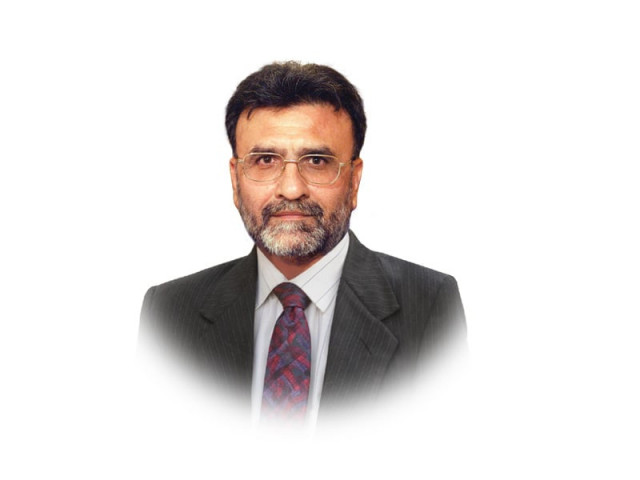Scepticism running high among MPs over timely elections
There were rather childish attempts by some PML-N members to score cheap points during the question hour.

Nusrat Javeed
Precisely 19 days are left in the constitutional life of this National Assembly. Before heading off to the heat and dust in their constituencies, its members should appear zealously building some feel-good narrative about them. Not a member seemed caring. There were rather childish attempts by some PML-N members to score cheap points during the question hour.
Raheel Asghar Sheikh tried to push the wily Wattoo into a tight corner by raising trivial matters. Then Shakeel Awan, another of his colleagues from Rawalpindi kept putting supplementary questions to Ghulam Ahmad Bilour with the intent of ridiculing Sheikh Rashid Ahmad, his local rival.
After serving the sole spokesperson of the military-led government after the election of 2008 for many months, the lawmaker from downtown Rawalpindi was moved to the railways ministry, when Shaukat Aziz became the prime minister. After reaching there, he tried to turn the ministry around by introducing a raft of new schemes, which were not backed by studiously prepared feasibility reports. Launching a “Shadee (marriage) Train” also fell in the same category.
The railways ministry has abandoned this train many years ago.
Since coming to this house, Awan had never put any questions about it. On Monday, however, he repeatedly asked the incumbent minister to specify the accumulated amount of money “the government had wasted to execute some idiotic ideas of Sheikh Rashid Ahmed.”
The juvenile conduct of legislators so close to another election forced me to approach 25 members of the National Assembly from different political parties with a straight question: “What are the chances of holding parliamentary election on time?” I was astonished to find out that not more than 40 per cent of respondents caught in the lobbies for a random survey had provided a clearly affirmative answer to this question. No wonder, people in all the major cities were calling their contacts in Rawalpindi and Islamabad to double-check whether the sudden tripping of the national grid at 11:20 Sunday night had anything to do with the possible moving of the 111 brigade.
Ironically, one had been receiving a flood of questions on a day, when someone powerful in Rawalpindi was reported to have held a long but discreet meeting with a set of star anchors of TV talk shows. Throughout Monday, reporters were found desperate to reach some of these anchors to find out details of the said meeting.
Sources I can rely on have claimed that most of time the man from Rawalpindi seemed hooked to find a satisfactory answer to a question:
Why do some media persons keep projecting the army as a hyperactive and formidable stakeholder of the power scene in Pakistan? Through specific examples, he tried to explain to his guests that the army had behaved differently since 2008. The democratic system has taken root and it seems more stable thanks to the vibrant media and the independent judiciary of the country.
Many of my colleagues, I was told, tried hard to find out the possible choices of khakis for the slots of caretaker governments in both the centre and the provinces. They were firmly told that the army had nothing to do with the selection process in this regard.
The usual set of hardened cynics in this country may still find it very hard to swallow this line. Even in fairly advanced and established democracies, the national security outfits always furnish a “negative list” of persons who could not be trusted when it comes to dealing with sensitive issues related to the state and its governance.
Asma Jahangir had not been “blackballed” by a peculiar group of ultranationalist journalists and commentators. Both the PPP and the PML-N have reached near-consensus to rope in Mehmood Khan Achakzai for heading the caretaker set-up. He continues to act extremely reluctant in saying yes for the fear of similar “blackballing” that Asma had endured. Raza Rabbani is facing tremendous pressure in the same context. So far, his issue has remained an in-house thing, though. A flood of speculative stories in both the print and electronic media had projected Rabbani as the most potent candidate for the office of caretaker prime minister. The PML-N never cared to deny the feeling.
In off-the-record meetings, some of its leaders sounded as if willing to approve the name enthusiastically. President Zardari had not felt good about it and that bad mood has been conveyed to Rabbani with taunts and an insulting tone.
Published in The Express Tribune, February 26th, 2013.



















COMMENTS
Comments are moderated and generally will be posted if they are on-topic and not abusive.
For more information, please see our Comments FAQ